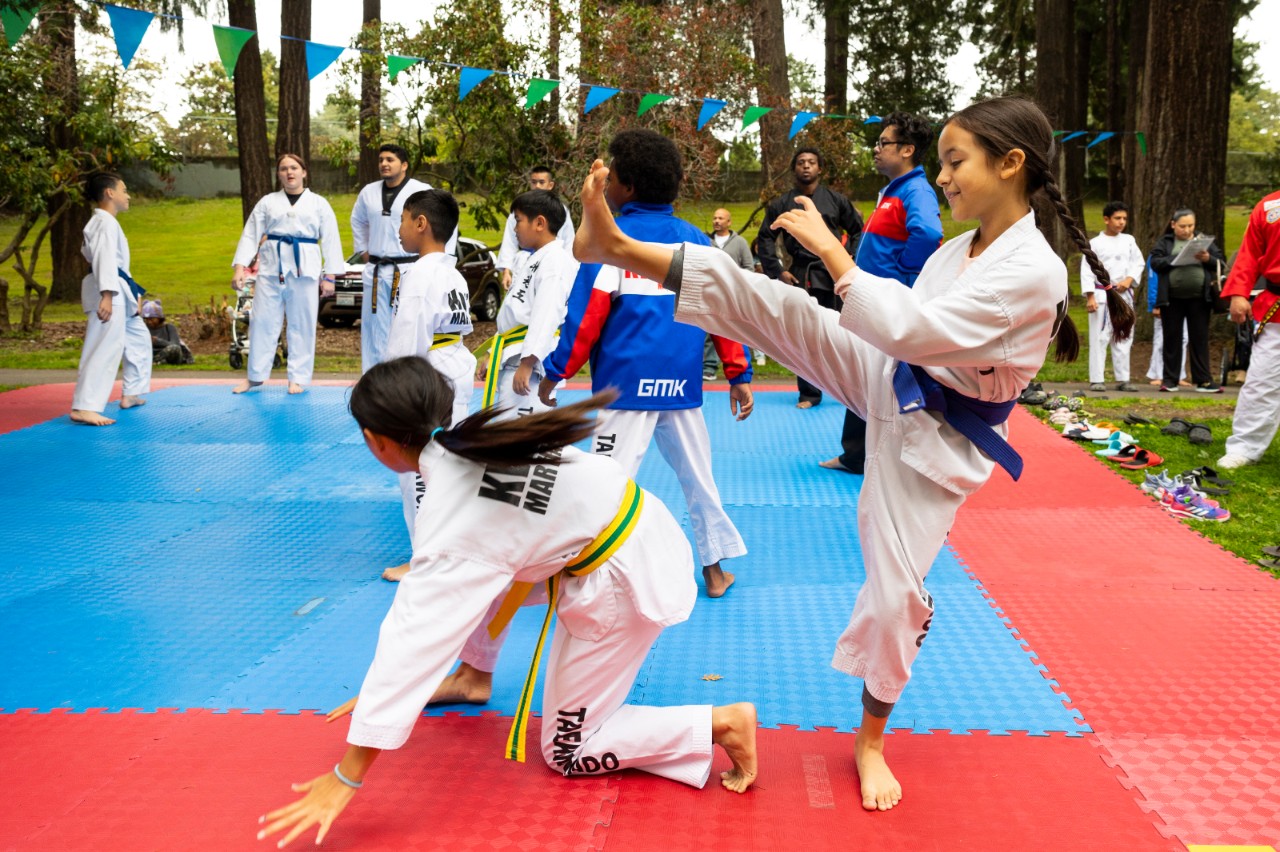Equity and access are at the heart of workforce development. We are building a future where every member of our community has an equal shot at success and the tools to make it happen.
—Katie Condit, CEO, WorkForce Central
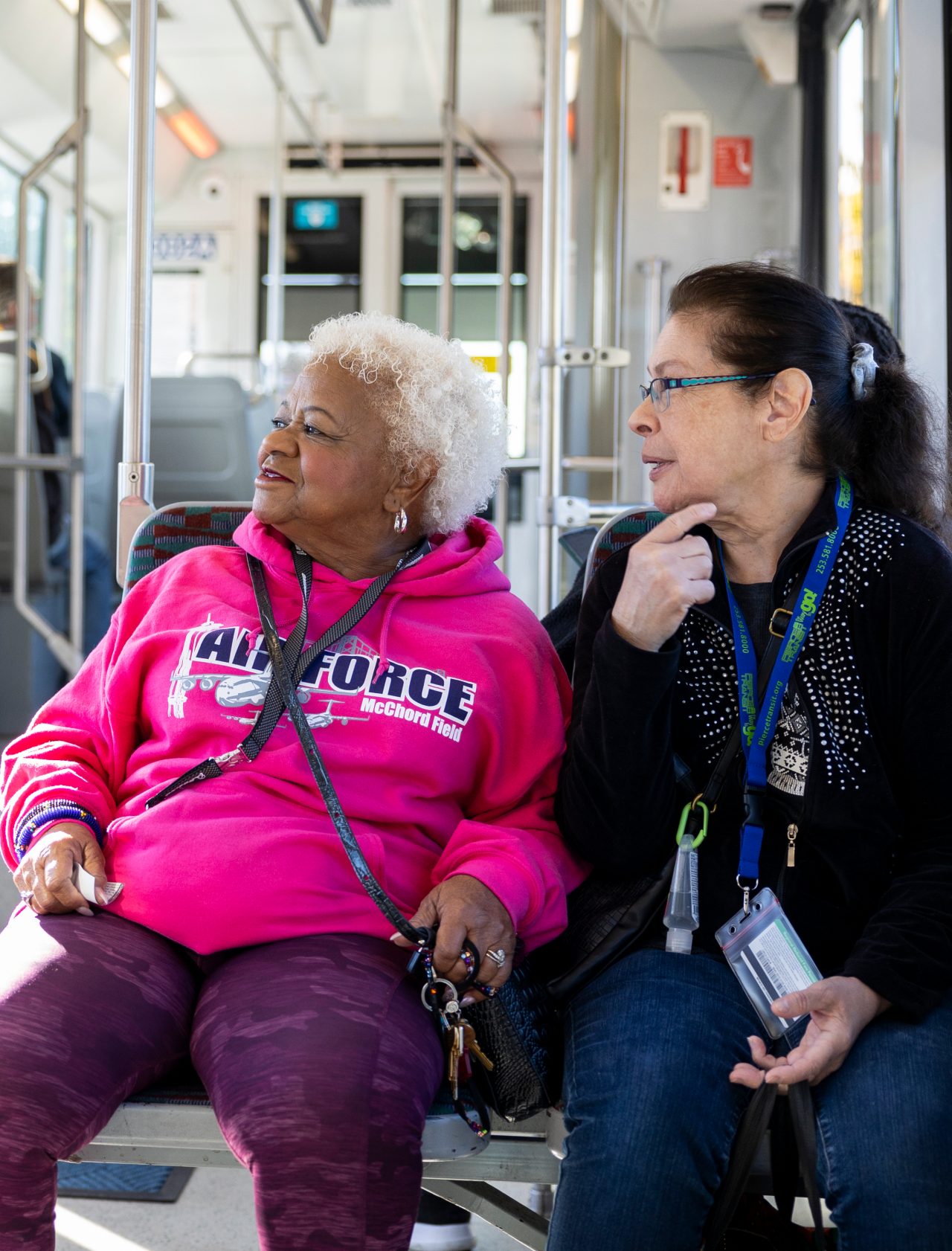

2023 RWJF Culture of Health Prize Winner
The old Union Station building perches proudly in downtown Tacoma, its antique arches and brick contrasting with contemporary glass facades and high-rises that surround it. Riding a light-rail train past Union Station, you may catch a glimpse of a colorful mural that depicts Tacoma’s hope for the future: a vision to become an antiracist city.
The wording of Tacoma Resolution #40622, the city’s proclamation to become an antiracist city, is painted alongside a beautiful tribute to Black lives. The resolution is a North Star the city embraces while holding partners true to their ideals. By joining together, the city and its partners can create the best future possible for everyone, their children, and their grandchildren. Partners know that Tacoma is the most diverse city in Washington state and its multiracial diversity is a strength. The city’s partners recognize that they have so much to gain by celebrating and supporting each other.
Tacoma’s vision for becoming an antiracist city means that everyone is treated with fairness and has what they need to make ends meet and that young people have a real shot at their best future. Tacoma has set its sights on healing injustices through deep partnerships that advance economic equity. As Mayor Victoria Woodards says, “Every city has its challenges, and Tacoma is no different in that regard. What makes Tacoma special is the people who call it home and our partners who work every day to build a Culture of Health. Our strength comes from deep partnerships and a shared vision for a better future for Tacoma that drives all of us forward, together.”
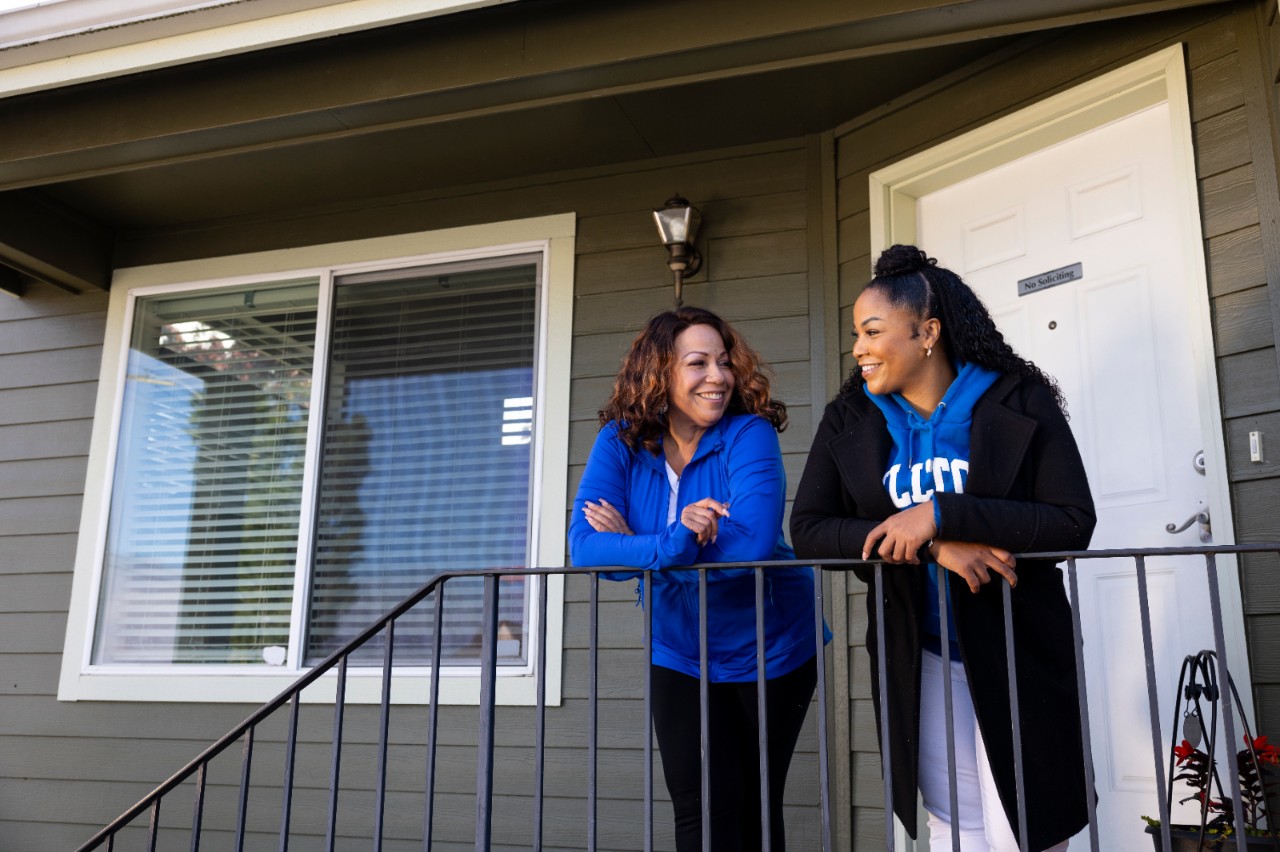 Tacoma City Council member Kiara Daniels pictured with her mother, Sandra Daniela, in front of their home in the Hilltop community.
Tacoma City Council member Kiara Daniels pictured with her mother, Sandra Daniela, in front of their home in the Hilltop community.
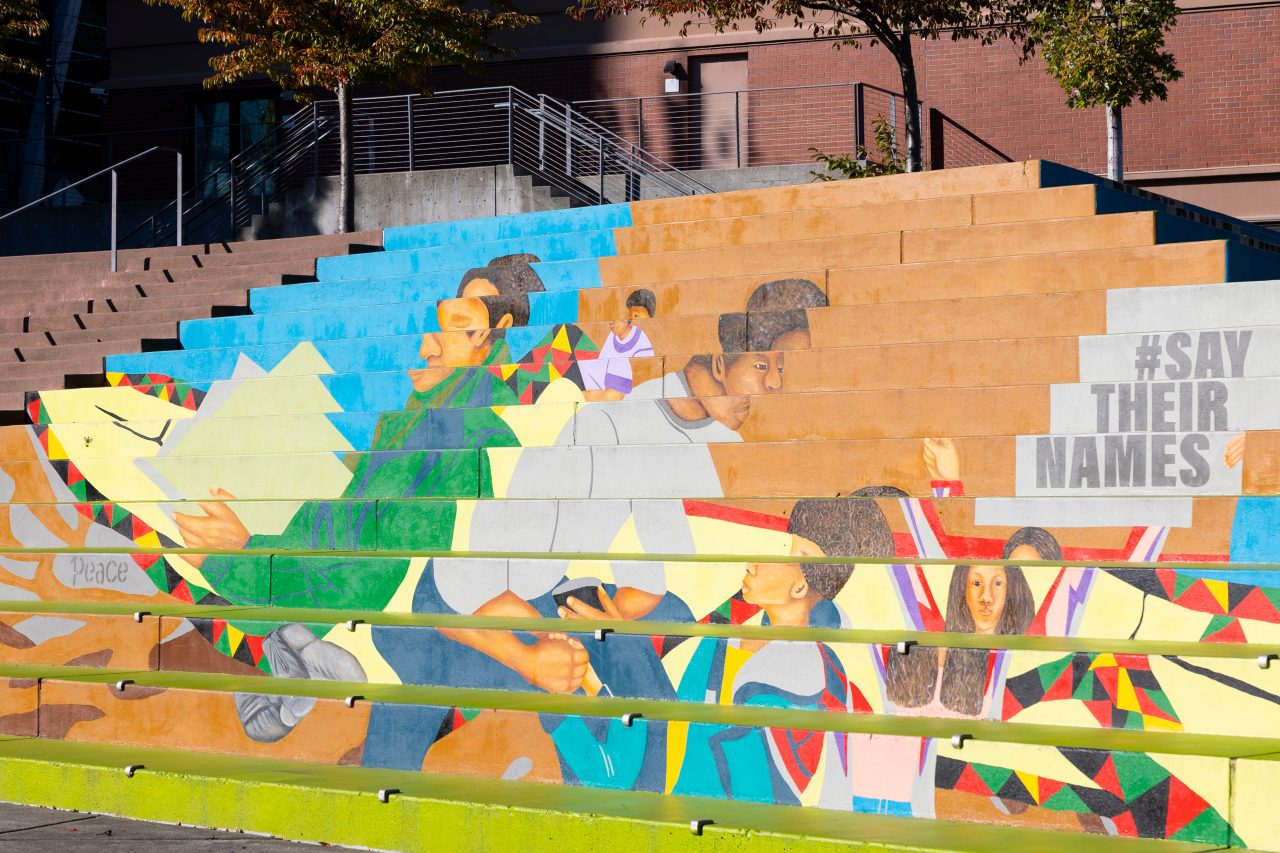 A community mural in Tollefsen Plaza celebrates Black lives and commemorates Resolution #40622: Tacoma’s declaration to become an antiracist city.
A community mural in Tollefsen Plaza celebrates Black lives and commemorates Resolution #40622: Tacoma’s declaration to become an antiracist city.
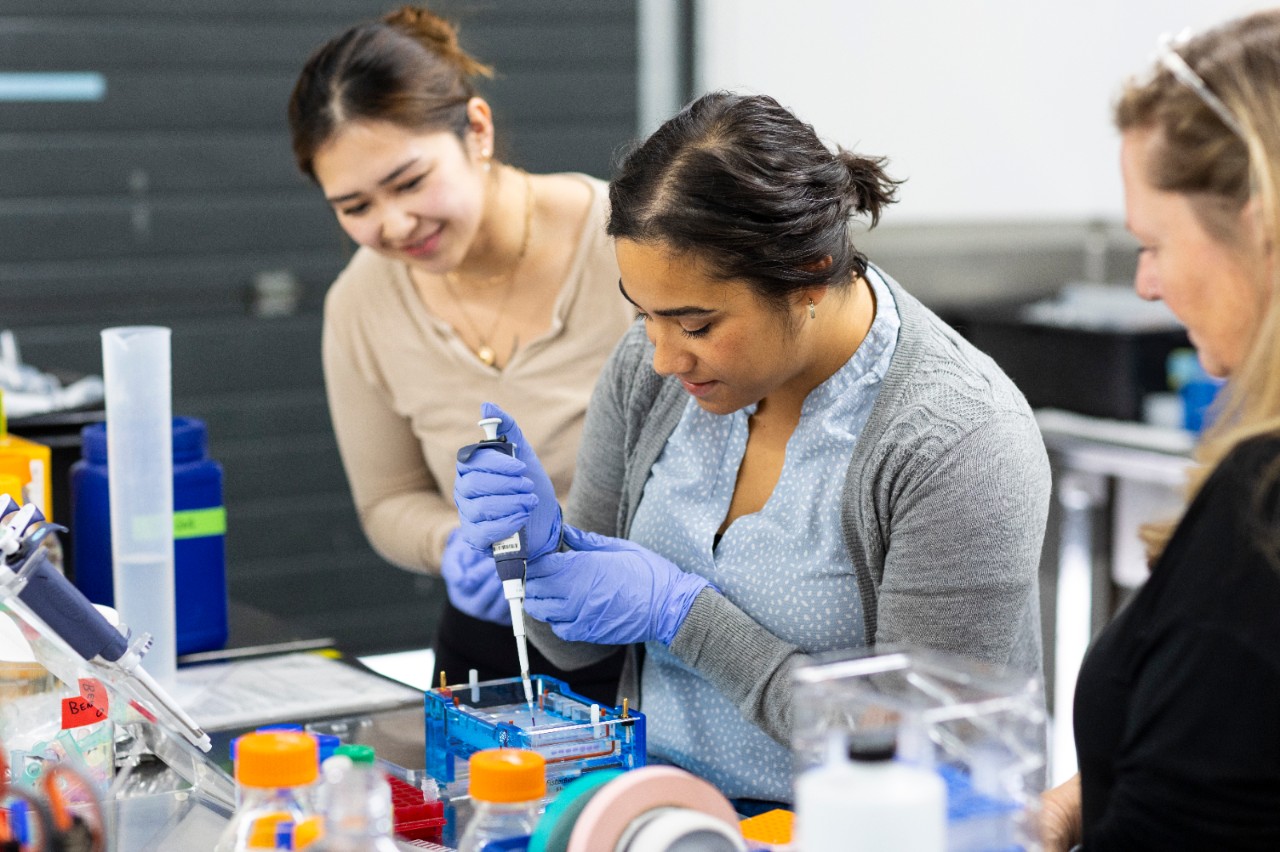 Tacoma’s workforce development includes hands on STEM job skills training, such as the RAIN Incubator Science Lab.
Tacoma’s workforce development includes hands on STEM job skills training, such as the RAIN Incubator Science Lab.
One way the Tacoma Anchor Network is following through on its promise is by developing and now using the Tacoma Equity Index. The Equity Index is a publicly accessible tool the city uses to improve the way it directs its resources. When distributing microloans to businesses as a way to fill gaps in previous funding, for example, the city’s Community and Economic Development Department relied on the Equity Index to ensure the loans went where they were meant to: areas of low and very low economic opportunity. With this focus on equity, there was a 333% increase in dollars awarded to Black-owned businesses between 2019 and 2021.
Leveraging the Equity Index as another available decisionmaking tool, the city and its partners can be precise in layering resources where there is greatest need, and people at all levels of city government can consider who is most impacted when making decisions. This has created a big cultural shift—operationalizing and transforming equity from a value into a practice, and now to the way the city and its partners do business. “The Equity Index as a tool is really kind of special,” shares Maria Lee from City of Tacoma government. “Equity is not just an abstract idea anymore. It’s measurable, it’s tangible, and there is data that backs up what we’re saying is some of the progress we're making in the community.” The tool’s impact is gaining attention, as other cities and the Washington state government are working to adopt the model.
Equity and access are at the heart of workforce development. We are building a future where every member of our community has an equal shot at success and the tools to make it happen.
—Katie Condit, CEO, WorkForce Central
The city’s strength of partnership has evolved over more than a decade and comes from a shared vision. In 2010, recognizing that only 55% of students were graduating high school, more than 40 partners signed on to an effort to increase graduation rates, with a focus on closing racial gaps in graduation rates. Today, through the communitywide Graduate Tacoma movement, more than 90% of Tacoma high school students earn a diploma. Most notably, the difference in graduation rates between Black and Latino students and their White peers is now less than 1%, compared to differences of 10% to 20% in 2010.
Knowing what the city is capable of, partners doubled down on their collaborative efforts to remove barriers for young people so that they can secure well-paying jobs after they graduate. Palmer Pathways Pre-Apprenticeship is building new routes into skilled trades for young people of color—well-paying, long-term career opportunities, such as carpentry, in fields that White men have historically dominated. Through the program, young people of color gain hundreds of hours of training and connections to apprenticeship partners who prioritize hiring students from the program.
Through Healthcare Pre-Apprenticeship Pathways, partners are collaborating to offer a robust, alternative pathway into healthcare jobs through an earn-and-learn model, where participants earn a living wage while gaining skills, from certificate to masters programs. This also expands the healthcare workforce. Partners include the local workforce development board, multiple hospital systems and healthcare providers, the state healthcare labor union, and WorkForce Central. This is an essential step to dismantling structural racism that harms patients and segregates Black and Latino healthcare workers into lower-paying jobs. “Equity and access are at the heart of workforce development,” shares Katie Condit, CEO of WorkForce Central. “We are building a future where every member of our community has an equal shot at success and the tools to make it happen.”
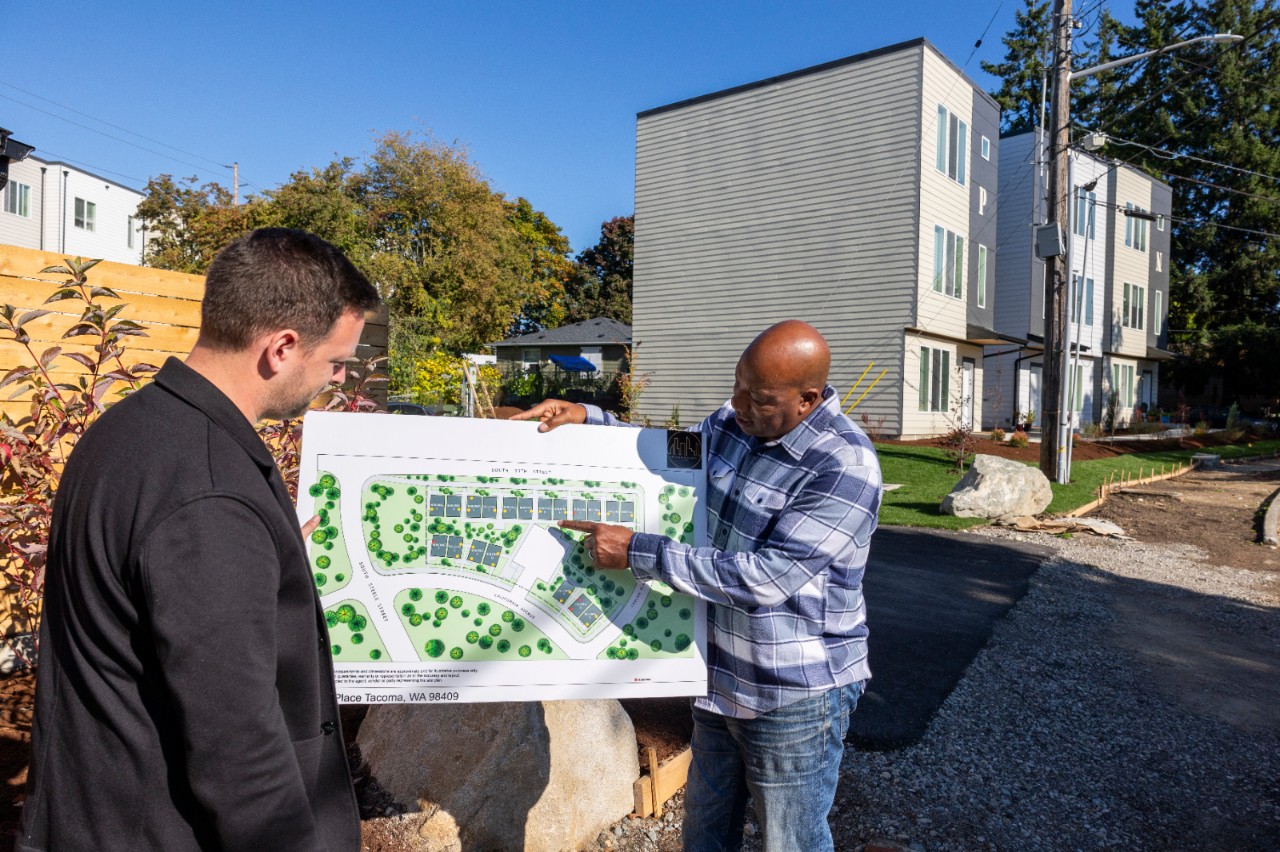 Housing developer Reggie Brown shows the plans of Wisteria Properties, a recently completed 40 unit affordable housing apartment complex in South Tacoma.
Housing developer Reggie Brown shows the plans of Wisteria Properties, a recently completed 40 unit affordable housing apartment complex in South Tacoma.
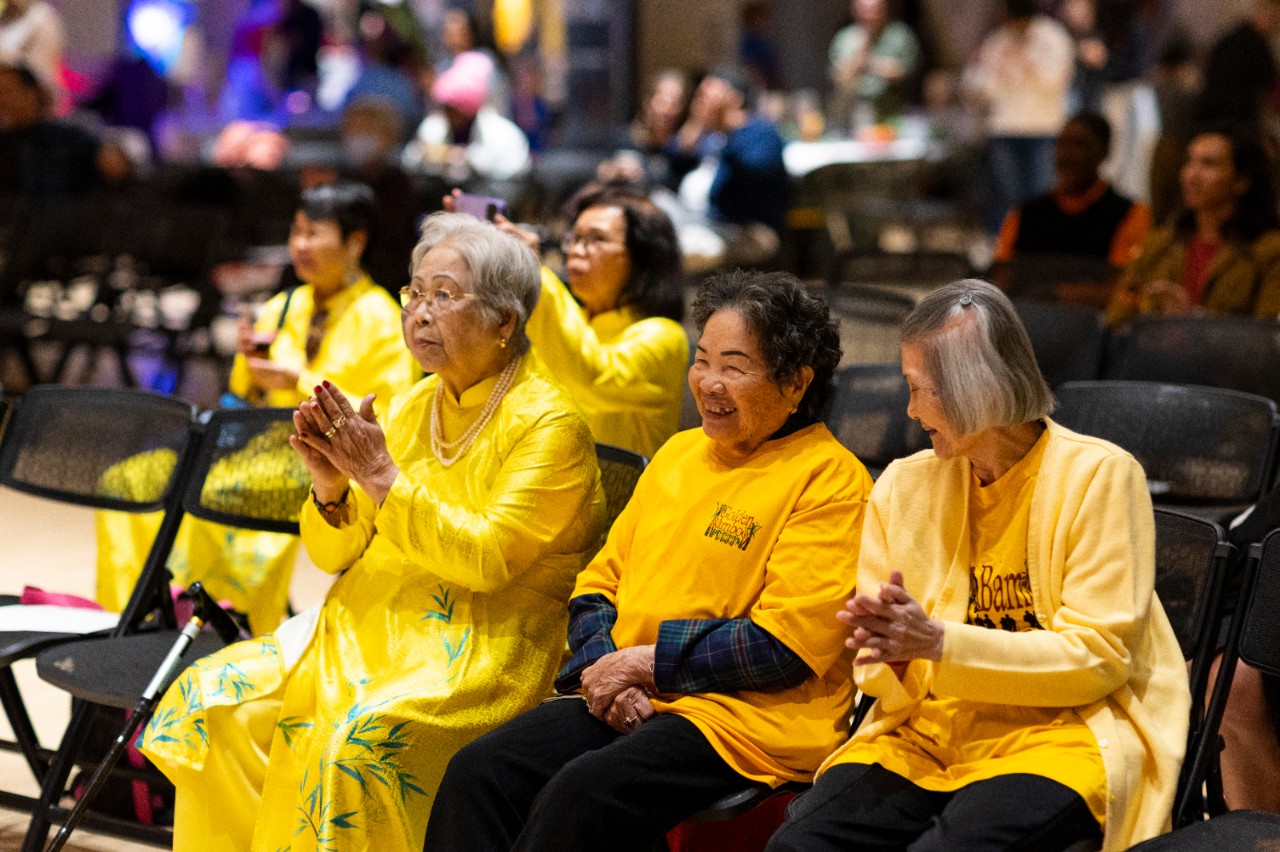 Cultural diversity is Tacoma’s strength. The Golden Bamboo Walking Club, pictured, performed a dance at Tacoma Arts Month’s opening party.
Cultural diversity is Tacoma’s strength. The Golden Bamboo Walking Club, pictured, performed a dance at Tacoma Arts Month’s opening party.
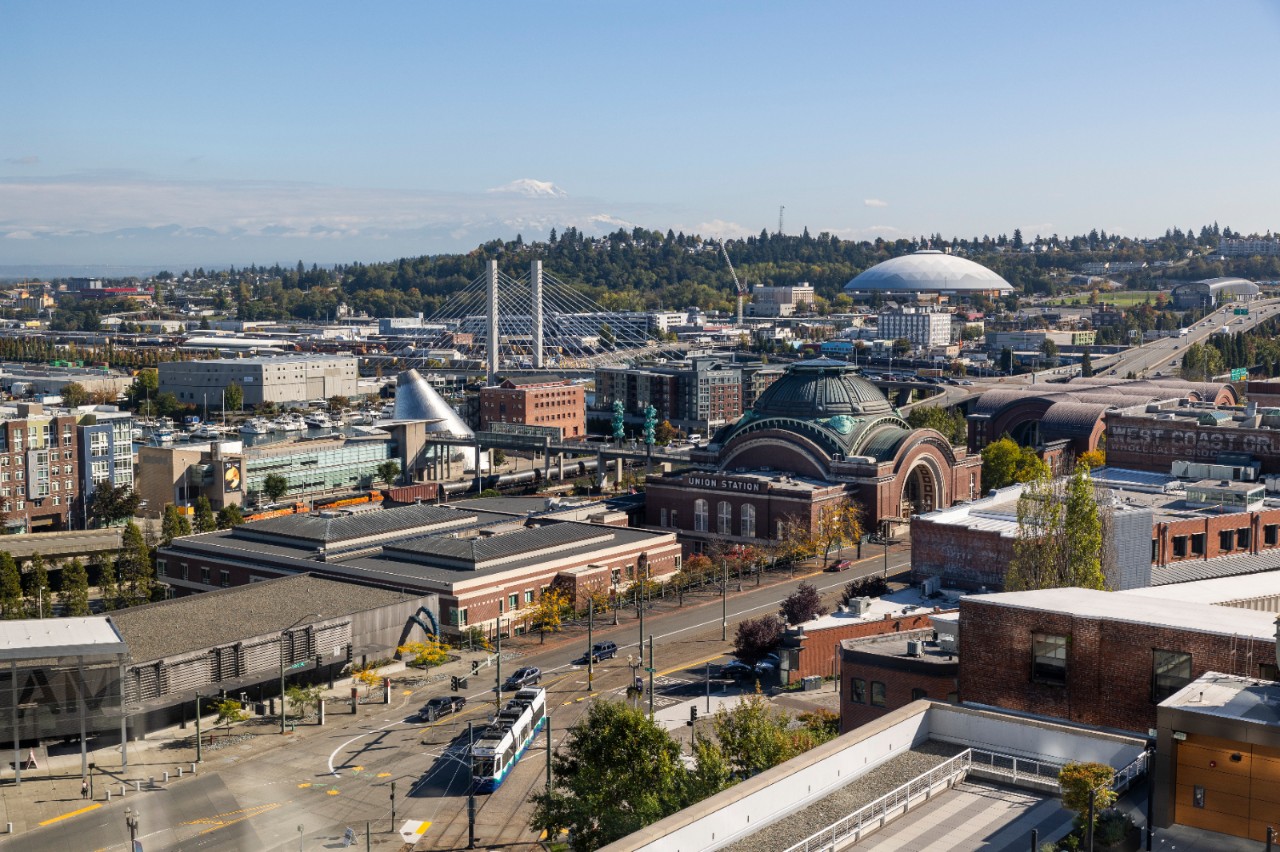 Downtown Tacoma shows buildings old and new, with a view of Mt. Rainier set against the horizon.
Downtown Tacoma shows buildings old and new, with a view of Mt. Rainier set against the horizon.
Partners recognized that poverty is a major barrier to a Culture of Health in the city and that no one should be forced to choose between basics like paying for medication or paying rent. The United Way, WorkForce Central, and the City of Tacoma are radically rethinking economic equity. Tacoma is one of the first cities in the country to pilot a guaranteed income strategy, known as Growing Resilience in Tacoma through which 110 people received $500 a month, unrestricted, for a year to supplement their income. Participants describe the stipend as giving them allowance to breathe, pay for tutoring, and invest in job training in order to secure a raise. A report on how this affected participants’ wellbeing, set to be released in 2024, is likely to spur greater investment at the local and national levels. Tacoma sees this as one more way to combat structural racism embedded in its economy. Partners envision amplifying and growing what works through programs like these until they become policy and practice—and until everyone in the city experiences health equity.
“It’s our shared commitment to the wellbeing of our community that shines brightly through these collaborations,” says Dona Ponepinto, president and CEO of United Way of Pierce County. “Together, we are forging a path toward a stronger, more resilient Tacoma for all.”
